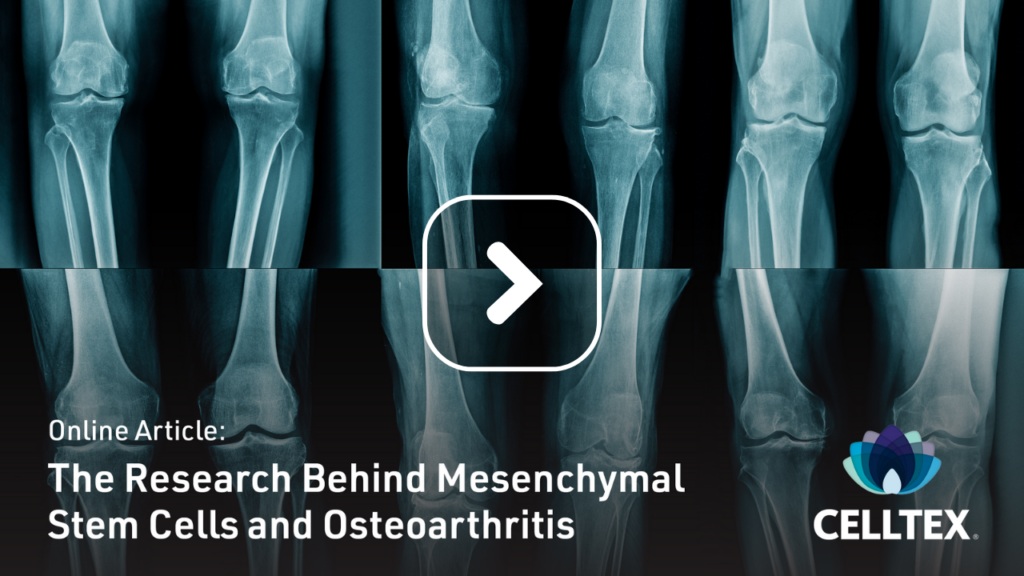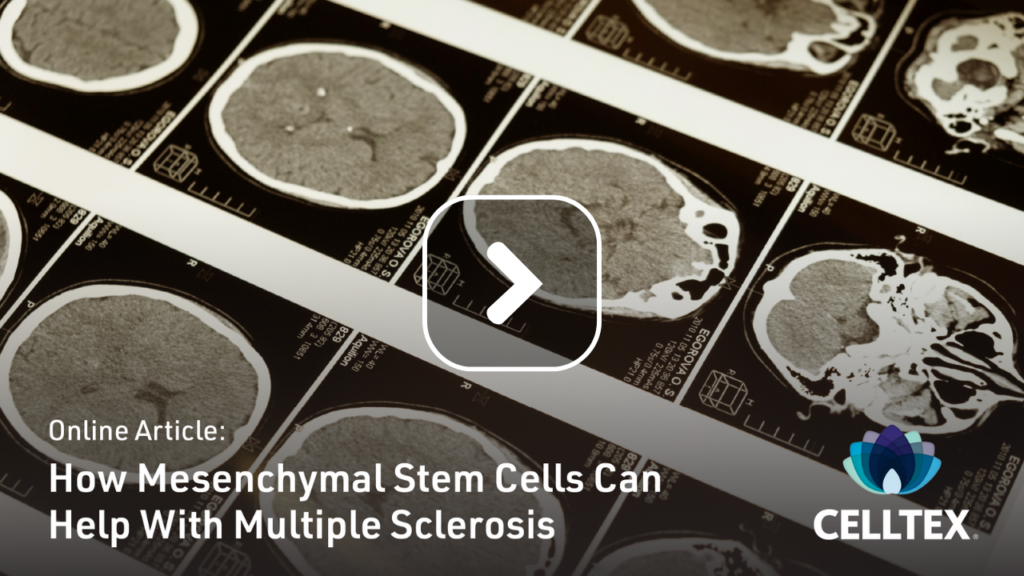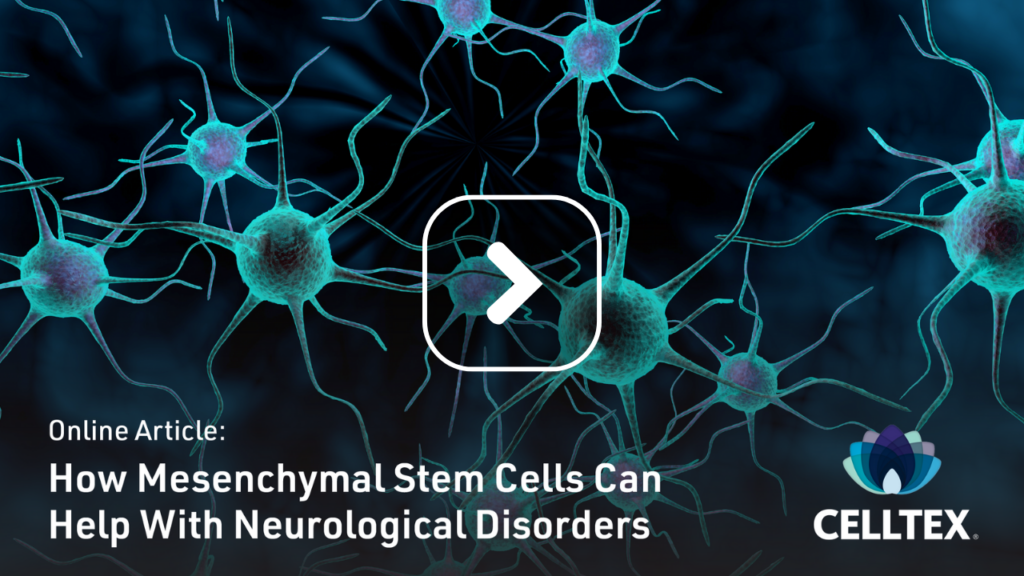Celltex News
What Conditions Can Stem Cells Be Used For?

NFL Hall of Famer Bob Lilly was in so much pain that he couldn’t dress himself or comb his own hair. Physically, Lilly was a shell of his former self. Playing for the Dallas Cowboys from 1961 to 1974, Lilly revolutionized the defensive tackle position. With his extraordinary strength, agility, and relentless pursuit of opposing quarterbacks, Lilly redefined the role of the defensive down lineman from one of a large, occupier-of-space to that of the highly athletic play disruptor seen in today’s game.
Several years after his playing days were over, Lilly, now 84, was diagnosed with an inflammatory condition called polymyalgia rheumatica. Shortly after his diagnosis, he woke up one morning and was in so much pain he could not pull himself out of bed and had to be rushed to the hospital. In short order, Lilly went from being a very active, former pro athlete to being crippled with pain. His disease was eating away at his soft tissue. He lost 50 pounds. But that wasn’t his only health problem. Lilly had also been diagnosed with atrial fibrillation, and his eyesight was starting to deteriorate.
In 2016, Lilly received his first stem cell therapy, which utilized his own (autologous) Mesenchymal Stem Cells cultured by Celltex Therapeutics. One year later, Lilly stated that he had regained full range of motion in his shoulders, was pain-free, no longer experienced heart murmurs, and his eyesight even improved.
Is Lilly’s story typical or an anomaly?
Beyond the anecdotes and testimonials, what conditions can stem cells be used for that are supported by research studies?
This article will explore the following disorders and health concerns that stem cells may help mitigate:
- Joint pain: osteoarthritis and degenerative disc disease
- Autoimmune diseases (rheumatoid arthritis, psoriatic arthritis, multiple sclerosis)
- Neurological conditions (Parkinson’s disease and others)
- Cardiovascular disease
- Respiratory conditions (COPD and Long COVID-19)
- Anti-aging and general wellness
Why Are Stem Cells Used for Disease Management?
Before reviewing the efficacy of stem cell therapy for specific conditions, it’s important to understand why stem cells are used in the first place—and, for that matter, which stem cells are being discussed. While there are many types of stem cells, the stem cells often used in regenerative medicine are Mesenchymal Stem Cells, or MSCs.
How MSCs Work
MSCs exert their therapeutic effects through several mechanisms of action. When a person receives stem cell therapy, MSCs can migrate to sites of injury or inflammation through a process known as homing. [1]
Once at the target tissue, MSCs secrete bioactive factors, including growth- and anti-inflammatory signaling molecules, that modulate the local microenvironment, suppressing inflammation, promoting tissue repair, and stimulating the regeneration of damaged cells.
In addition, MSCs are multipotent, meaning they can differentiate into several cell types, such as chondrocytes (cartilage cells) and osteocytes (bone cells). While this ability to differentiate is significant, it has been suggested that the bioactive factors secreted by MSCs (mentioned above) play a greater role in the regenerative and immunomodulatory effects elicited from stem cell therapy. [2]
Stem Cell Research and Osteoarthritis
It’s not just retired gridiron warriors like Lilly who suffer from pain, stiffness, and swelling. According to the CDC, osteoarthritis (OA) affects over 32.5 million adults in the United States. OA, the most common form of arthritis, is also known as degenerative joint disease or “wear and tear” arthritis.
A 2022 research review published in the journal, Genes, states, “The inability of current medications to arrest disease progression [of OA] has led to rapidly growing clinical research relating to mesenchymal stem cells (MSCs).” The researchers explain that MSC’s “primary mechanisms of action are trophic and immunomodulatory effects, which prevent the further degradation of joints.” In addition, MSCs can prevent fibrosis (the formation of nonfunctional scar tissue), initiate the formation of new blood vessels (angiogenesis), and stimulate cell division (mitosis) via growth factors.
Moreover, the researchers suggest that MSCs have even been shown to exhibit antimicrobial effects. The authors conclude, “Clinical results incorporating clinical scores and objective radiological imaging have been promising.” [3]
A 2023 study published in Bioengineering states that MSCs may limit cartilage degradation in OA by interfering with cellular immunity and secreting several active chemicals (the bioactive factors mentioned previously). Inflammation plays a significant role in the joint damage associated with OA, which is why the MSCs’ ability to modulate inflammation is often studied. [4]

Researchers from Taiwan (primarily through the Institute of Cellular & System Medicine and National Defense Medical Center (NDMC)) reviewed the state of clinical trials involving human MSC treatment of immune and/or inflammatory-mediated diseases in a 2016 article. In this review, the authors highlighted 38 clinical trials that focused on MSC therapy for OA. A key takeaway from this analysis is that, besides demonstrating the overall safety of MSC therapy for OA patients, the clinical trials had reported positive results in terms of symptom improvement, pain reduction and, in some cases, cartilage regeneration in the OA patients. [5]
Separately, another team of researchers evaluated the long-term safety and efficacy of adipose-derived mesenchymal stem cell (AdMSC) therapy in the treatment of knee OA. In this study, 329 people with knee OA had their own MSCs administered intraarticularly to the knee joint and were then monitored for 24 months post-therapy. [6]
The 2022 study (published in Regenerative Medicine) concluded that:
- AdMSC treatment was well tolerated with no participants experiencing serious adverse events related to the therapy.
- All AdMSC treatment groups experienced clinically and statistically significant pain improvement.
The authors concluded that AdMSC therapy “is an effective, safe and long-lasting treatment option for knee OA with the potential to delay total joint replacement.” [6]
Degenerative Disc Disease (DDD)
Degenerative disc disease is essentially osteoarthritis that afflicts the spine. Over 90% of people exhibit some degree of disc degeneration by age 60, according to the Neurosurgery Department at Columbia University.
A 2021 Cochrane review (widely considered the gold standard of research meta-analyses) published in Stem Cells International concluded that MSC therapy could significantly decrease disability index scores in patients with DDD.
“Distinctly, the findings of this meta-analysis suggest a novel therapeutic strategy for patients with chronic low back pain (LBP) and lumbar dysfunction.” [7]
Celltex Client Outcomes: Osteoarthritis
MSCs cultured by Celltex have been used in over 10,000 therapies—including for clients with OA—with no severe adverse events. In internal studies, stem cell therapies utilizing Celltex-produced MSCs have shown positive results in OA cases.
Based on Celltex client-reported outcomes:
- 81% of Celltex client respondents with osteoarthritis of the knee reported improvement in one or more symptoms.
- 86% of Celltex client respondents with osteoarthritis of the knee said they would recommend MSC therapy to others.
- 83% of Celltex client respondents with osteoarthritis of the shoulder reported improvement in one or more symptoms.
- 95% of Celltex client respondents with osteoarthritis of the shoulder said they would recommend MSC therapy to others.
→ Receive a detailed overview of Celltex’s client reported results for OA here.
Stem Cell Research and Autoimmune Conditions
In addition to their potency, a key feature of MSCs is their immunomodulating properties. As multiple labs have demonstrated, MSCs and/or their secretions have the ability to modulate the immune system and the inflammatory response. As such, a number of clinical trials have been initiated to assess the safety and efficacy of MSC therapy for the treatment of several autoimmune systemic disorders. [8]
We’ll take a look at some common conditions within the autoimmune category.

Rheumatoid Arthritis
Unlike wear-and-tear OA, inflammatory arthritis (IA) describes a group of autoimmune diseases affecting the joints. The most common form of IA is rheumatoid arthritis (RA).
RA is a chronic systemic autoimmune disorder that deteriorates the quality and function of the synovium membrane. This thin layer of tissue lines the inside of joint capsules and produces synovial fluid, which lubricates the joints and reduces friction between the bones during movement. The deterioration of the synovium membrane results in chronic inflammation and pain as well as progressive cartilage and bone destruction.
A 2021 study published in the International Journal of Molecular Sciences observed that long-term use of RA drugs frequently causes side effects and that some RA patients may acquire resistance to these drugs. Thus, MSC therapy has been investigated as a promising alternative. [9]
Further, a 2023 review in Stem Cell Research And Therapy explored the reasoning behind using MSC therapy to treat RA and other autoimmune conditions.
“MSCs possess potent immunomodulatory properties, which can reduce inflammation and promote tissue repair, making them an attractive option for RA therapy.” [10]
The researchers added, “Several clinical trials have reported positive outcomes with MSC-based therapy in RA patients, including improvements in clinical symptoms, joint function, and quality of life, as well as a reduction in inflammatory markers.” [10]
Psoriatic Arthritis
Psoriatic arthritis is another form of IA. This chronic autoimmune condition causes joint inflammation, which can cause pain, stiffness, and swelling. It commonly occurs in people with psoriasis, an inflammatory skin condition marked by red, scaly patches. Psoriatic arthritis can affect any joint in the body.
A 2017 review article in the International Journal of Molecular Sciences explores the treatment of spondyloarthropathies (SpA), a group of inflammatory rheumatic diseases that includes psoriatic arthritis. [11]
As the authors note, current disease-modifying anti-rheumatic drugs (DMARDs) and biologics (such as TNF-α, IL-12/23, and IL-17 inhibitors) primarily control inflammation to slow disease progression. However, these drugs do not impact or reverse the abnormal bone formation associated with SpA. In light of this, stem cell therapy has been explored as a possible alternative that may have a greater impact for patients with SpA. MSCs specifically hold promise due to their ability to target both inflammation and tissue regeneration in SpA, potentially providing a more comprehensive approach to treatment. [11]
Celltex Client Outcomes: Inflammatory Arthritis
Celltex’s Research & Development Team has collected data from clients with various types of inflammatory arthritis (IA) who received stem cell therapy using autologous AdMSCs. These clients reported the following:
- 100% of Celltex client respondents with IA reported improvement in one or more symptoms.
- 75% of clients’ physicians noted a measured improvement in their patient’s IA symptoms via the American College of Rheumatology’s ACR20 Assessment.
- 90% of Celltex client respondents with IA said they would recommend MSC therapy to others.
→ Access a detailed overview of Celltex client reported results for IA here. You can also watch a quick video featuring a Celltex client with RA who received stem cell therapy using her own Celltex-cultured MSCs.
Multiple Sclerosis (MS)
Multiple Sclerosis is an autoimmune disease driven by autoreactive T cells and B cells that target the central nervous system (CNS) and manifests with various neurological and physical signs and symptoms.
At a base level, the immune system becomes dysregulated and damages the protective myelin sheath that blankets the nerves in the CNS. Functionally, this involves the immune system mistakenly recognizing the myelin sheaths and/or the oligodendrocyte cells as foreign, and subsequently attempting to remove that myelin through an inflammatory response.
If prolonged and/or frequent, this inflammatory response creates dysfunctional scar tissue (through fibrosis) and causes the loss of myelin leading to dysfunctional neurons. Consequently, this damage leads to the breakdown of nerves and nerve tissue that disrupts communication within the CNS and progressively makes it more difficult for the brain and body to communicate. This leads to problems with balance, muscle control, vision, and more that will only become progressively worse.

All currently available treatments for MS simply slow disease progression and reduce relapses; there is no cure.
However, MSC therapy is providing hope for MS patients. A 2021 scientific review published in Advanced Science describes how MSCs may help combat MS through immunotolerance induction—a desensitization process in which an immune response against a particular antigen can be lessened and/or prevented. Furthermore, through their immunomodulating properties, MSCs may diminish the inflammation surrounding the myelin and neurons. [12, 13, 14]
In fact, in a 2020 review article analyzing available pre-clinical and clinical studies, researchers found that MSCs and the MSC secretome (the various growth and trophic factors secreted by MSCs) provided therapeutic benefits and neuroprotective effects in experimental MS models. Further, in experimental models, the MSC secretome promoted the differentiation of myelin-producing cells in the CNS, meaning that MSCs may help regenerate myelin that was damaged during a previous MS-type flare-up. MSC therapy itself was well-tolerated in the clinical studies with some patients experiencing improvements in clinical measurements (i.e., greater muscle strength and bladder function). [15]
Celltex Client Outcomes: Multiple Sclerosis
Celltex conducted a retrospective analysis of clients with MS who received stem cell therapy to examine the client-reported impact of MSC therapy on MS disease progression and patient quality of life. The study analyzed survey results collated from a three-year span (from 2011 to 2014).
The results: 79% of clients with MS indicated improvement in one or more symptoms.
This data is noteworthy considering the majority of those surveyed were at a point in their disease in which irreversible functional losses are generally more likely to be present:
- 73% were over 50 years old
- 50% had been living with the condition for over 15 years
- 68% had an EDSS score above 6.5 (MS patients with an EDSS > 6.5 generally do not respond to disease-modifying therapies (DMTs))
And yet most respondents still noticed improvements.
→ Receive a comprehensive overview of our client reported results for MS; watch a brief video interview with a Celltex client with MS, and read about another Celltex client’s progress with MS following MSC therapy.
In addition to inflammatory arthritis and MS, stem cell therapy has shown promising results for Inflammatory Bowel Disease (IBD), Hashimoto’s Disease, and other autoimmune and/or inflammatory conditions.
Stem Cells and Neurological Conditions
According to a 2023 report by the American Brain Foundation, the economic burden of major neurological conditions in the United States is roughly $800 billion annually, equivalent to Switzerland’s GDP. Does stem cell-based therapy represent a promising, efficacious solution for such disorders?
In the aforementioned 2021 review article (Advanced Science), the authors concluded the following:
“Experimental studies using animal models and the first clinical trials of MSC transplantation in CNS diseases indicate that these cells have positive therapeutic effects. Their transplantation is safe and does not appear to cause undesirable side effects. The available literature shows that MSCs are actively mobilized to damaged tissues.” [12]
This is welcomed news for the nearly 7 million Americans living with Alzheimer’s disease (AD) and the additional 1 million with Parkinson’s disease (PD). In addition to showing promising results in preclinical and small clinical trials for AD and PD—the two most common neurological diseases—stem cell-based therapies have likewise demonstrated promise in early research for Huntington’s Disease, traumatic brain injury (TBI), stroke recovery, spinal cord injury, and Amyotrophic Lateral Sclerosis (ALS). [12]

Parkinson’s Disease (PD)
Parkinson’s disease is a progressive neurodegenerative disorder attributed primarily to the loss of nerve cells that produce dopamine, a neurotransmitter that plays a key role in regulating mood, pleasure, motivation, and movement. As dopamine levels decline, the brain’s ability to regulate muscle movement throughout the body diminishes. This causes the hallmark symptoms of PD, such as tremors, rigidity, instability, and slowness of movement. PD patients typically develop non-movement symptoms, such as loss of smell, constipation, and mental health imbalances (i.e., mood, cognition, and sleep irregularities), in addition to the canonical movement symptoms.
Due to the plethora of symptoms that may or may not be present with PD, treatment is generally tailored to the individual PD patient’s symptoms. However, first-line treatment involves typically some form of levodopa to replace the patient’s diminished dopamine levels. Unfortunately, there is no curative therapy for PD. Rather, therapies aim to manage PD-associated symptoms.
However, MSC therapy may present an additional option for individuals living with PD.
Oh et al. found that MSCs can inhibit the transmission of a protein called α-Synuclein in in vitro cell cultures and an in vivo rodent model. This is significant in that α-synuclein-containing Lewy bodies are a hallmark of PD. By blocking the spread of abnormal α-Synuclein proteins between neurons, stem cell therapy with MSCs may help lessen the severity of PD. [16]
Overall, MSC treatments in research studies elicited elevated dopamine levels, decreased inflammation, and improved motor function in rodent models of PD. While sparse, clinical trial data has indicated that MSC therapy is safe and well-tolerated by PD patients, and this coincides with observable improvements in motor function for some patients. [12]
Celltex Client Outcomes: Parkinson’s Disease
Celltex conducted a registry study to analyze the reported results of clients with PD who received MSC therapy between March 2012 and December 2020. This analysis found that 81% of the surveyed clients noticed improvements in at least one survey method.
→ Request a copy of the client reported results.
Although the future of stem cell-based therapies for neurodegenerative diseases offers hope and excitement, more research is needed—especially for conditions like ALS and Huntington’s.
Stem Cells and Cardiovascular Conditions
MSC therapy is also being explored as a therapy option for various vascular conditions and cardiovascular diseases. As detailed in a review article in Molecular Therapy, the administration of MSCs was able to improve cardiac function and reduce scar size in preclinical animal models. Regarding the MSC therapy, the authors state:
“These effects occur via the stimulation of endogenous repair mechanisms, including regulation of immune responses, tissue perfusion, inhibition of fibrosis, and proliferation of resident cardiac cells”. [17]
Clinical trials will soon hopefully mirror these promising preclinical findings.

Stem Cells and Respiratory Conditions
COPD
Chronic obstructive pulmonary disease, or COPD, is a group of chronic inflammatory lung diseases characterized by restricted airflow, breathing difficulties, and other chronic respiratory-related symptoms. The two primary COPDs are emphysema and chronic bronchitis.
As COPD progresses, the lung bronchi and alveoli lose elasticity and scar tissue may form leading to poor airflow and exchange of respiratory gases. Currently, there is no cure, but symptoms may be treatable to lessen the impact on the patients’ quality of life.
Given the pathology and disease course associated with COPD, stem cell therapies are actively being explored as treatment options. The ability of MSCs to modulate the immune system, limit scar tissue formation/damage, and promote repair within the lungs make them ideal candidates to positively impact the disease course of COPD in patients.
A 2021 research review published in the aptly-named journal, Chest, cites preclinical studies that show MSCs “may provide a therapeutic option for this incurable disease because of their anti-inflammatory, reparative, and immunomodulatory properties.” [18]
COPD clinical trials using MSCs have demonstrated safety, but more research is needed to determine efficacy.
COVID-19
At the height of the COVID-19 pandemic, numerous medications and therapies were explored to combat the virus. MSC therapy was one such therapy to be explored as both a prophylactic and therapeutic option.
Yan et al. conducted a systematic review and meta-analysis (SRMA) of these early MSC studies to determine the impact of MSC therapy on COVID-19 patients. The authors’ analysis of eight randomized control trials (RCTs) found that besides being well-tolerated, the MSC therapy provided clinical benefits. Namely, the MSC treatment groups had statistically significant reductions in mortality coupled with improvements in clinical symptoms relative to the standard therapy groups. [19]
While the COVID-19 pandemic has eased, post-COVID-19 syndrome (long COVID-19) remains an issue. Individuals with long COVID-19 suffer from clinical symptoms that range in both variety and severity and can negatively impact their quality of life to the point of being disabling.
In a small study published in JAMA, 10 people with post-COVID-19 syndrome who were treated with MSCs experienced significant improvements in the signs and symptoms associated with the syndrome and further reported improvements in their quality of life. [20]

Stem Cell-Based Therapy for Other Conditions
Having your own cultured MSCs administered (via IV infusion, injection, or intranasally) may help improve several other conditions that don’t quite fit any of the above categories. Dysautonomia and chronic fatigue syndrome are a few examples of such conditions. Regardless of your condition, it’s beneficial to speak with a physician to see if stem cell banking or therapy is an option for you.
→ Read how Celltex client Mikaela Aschoff finally feels normal again years after her dysautonomia diagnosis started to disrupt her life.
Stem Cells for Anti-Aging & General Wellness
Cellular senescence has become a recent focal point of research in the anti-aging field. Cellular senescence occurs when cells stop dividing and don’t die off as they should. Senescent cells linger in the body and may release inflammatory factors and other harmful chemicals that promote inflammation and/or interfere with the function of surrounding non-senescent cells. This biochemical state is a microscopic canary in the coal mine for premature aging, age-related diseases, and tissue degeneration.
Eating healthy, exercising, and even some pharmaceutical drugs may slow the process of cellular senescence. However, researchers suggest that these cannot “fundamentally delay or even reverse senescence.” But what is expected to be a “potentially effective way to alleviate or cure senescence-related disorders in the coming future,” the researchers predict, is stem cell-based therapy. [21]
Although you may not have a chronic disease or nagging injury, harnessing the regenerative potential of stem cells could still offer benefits for combating aging and promoting overall wellness.

Future Applications for Stem Cell-Based Therapies
As research progresses, the future holds immense promise for stem cell-based therapies. Whether as a preventative anti-aging measure or a regenerative intervention, therapies using MSCs are already revolutionizing treatments across many applications.
Celltex Therapeutics has taken regenerative medicine a step further through the process of Adult Stem Cell Banking.
Celltex’s technology enables an individual’s banked MSCs to be expanded into quantities exponentially greater than that of other regenerative medicine offerings, greatly increasing the potential for positive results when therapeutic application is necessary.
This difference in cell quantity, along with the compatibility from using one’s own cells contributes to the superior quality of Celltex-produced MSCs. Celltex-produced MSCs have the potential to succeed where other stem cell therapies may have failed before.
Learn More About Celltex
Founded by entrepreneur David G. Eller and world-renowned spine surgeon Dr. Stanley C. Jones, Celltex is able to isolate, expand, and cryopreserve your own adipose-derived MSCs. Celltex-cultured MSCs have been used in over 10,000 stem cell therapies with no severe adverse events.
Interested in learning more about Celltex Adult Stem Cell Banking? Request a virtual brochure, watch our educational webinars, or contact us directly.
If you’re in the Houston area, you can schedule a tour of our lab in person or tour it virtually.
References:
- Eseonu, O. I., & De Bari, C. (2015). Homing of mesenchymal stem cells: mechanistic or stochastic? Implications for targeted delivery in arthritis. Rheumatology (Oxford, England), 54(2), 210–218. https://doi.org/10.1093/rheumatology/keu377
- Han, Y., Yang, J., Fang, J., Zhou, Y., Candi, E., Wang, J., Hua, D., Shao, C., & Shi, Y. (2022). The secretion profile of mesenchymal stem cells and potential applications in treating human diseases. Signal transduction and targeted therapy, 7(1), 92. https://doi.org/10.1038/s41392-022-00932-0
- Molnar, V., Pavelić, E., Vrdoljak, K., Čemerin, M., Klarić, E., Matišić, V., Bjelica, R., Brlek, P., Kovačić, I., Tremolada, C., & Primorac, D. (2022). Mesenchymal Stem Cell Mechanisms of Action and Clinical Effects in Osteoarthritis: A Narrative Review. Genes, 13(6), 949. https://doi.org/10.3390/genes13060949
- Lv, Z., Cai, X., Bian, Y., Wei, Z., Zhu, W., Zhao, X., & Weng, X. (2023). Advances in Mesenchymal Stem Cell Therapy for Osteoarthritis: From Preclinical and Clinical Perspectives. Bioengineering (Basel, Switzerland), 10(2), 195. https://doi.org/10.3390/bioengineering10020195
- Wang, L. T., Ting, C. H., Yen, M. L., Liu, K. J., Sytwu, H. K., Wu, K. K., & Yen, B. L. (2016). Human mesenchymal stem cells (MSCs) for treatment towards immune- and inflammation-mediated diseases: review of current clinical trials. Journal of biomedical science, 23(1), 76. https://doi.org/10.1186/s12929-016-0289-5
- Freitag, J., Wickham, J., Shah, K., & Tenen, A. (2022). Real-world Evidence of Mesenchymal Stem Cell Therapy in Knee Osteoarthritis: A Large Prospective Two-Year Case Series. Regenerative Medicine, 17(6), 355–373. https://doi.org/10.2217/rme-2022-0002
- Xie, B., Chen, S., Xu, Y., Han, W., Hu, R., Chen, M., He, R., & Ding, S. (2021). Clinical Efficacy and Safety of Human Mesenchymal Stem Cell Therapy for Degenerative Disc Disease: A Systematic Review and Meta-Analysis of Randomized Controlled Trials. Stem cells international, 2021, 9149315. https://doi.org/10.1155/2021/9149315
- Paganelli, A., Tarentini, E., Benassi, L., Kaleci, S., & Magnoni, C. (2020). Mesenchymal stem cells for the treatment of psoriasis: a comprehensive review. Clinical and experimental dermatology, 45(7), 824–830. https://doi.org/10.1111/ced.14269
- Sarsenova, M., Issabekova, A., Abisheva, S., Rutskaya-Moroshan, K., Ogay, V., & Saparov, A. (2021). Mesenchymal Stem Cell-Based Therapy for Rheumatoid Arthritis. International journal of molecular sciences, 22(21), 11592. https://doi.org/10.3390/ijms222111592
- Babaahmadi, M., Tayebi, B., Gholipour, N. M., Kamardi, M. T., Heidari, S., Baharvand, H., Eslaminejad, M. B., Hajizadeh-Saffar, E., & Hassani, S. N. (2023). Rheumatoid arthritis: the old issue, the new therapeutic approach. Stem cell research & therapy, 14(1), 268. https://doi.org/10.1186/s13287-023-03473-7
- Krajewska-Włodarczyk, M., Owczarczyk-Saczonek, A., Placek, W., Osowski, A., Engelgardt, P., & Wojtkiewicz, J. (2017). Role of Stem Cells in Pathophysiology and Therapy of Spondyloarthropathies-New Therapeutic Possibilities?. International journal of molecular sciences, 19(1), 80. https://doi.org/10.3390/ijms19010080
- Andrzejewska, A., Dabrowska, S., Lukomska, B., & Janowski, M. (2021). Mesenchymal Stem Cells for Neurological Disorders. Advanced science (Weinheim, Baden-Wurttemberg, Germany), 8(7), 2002944. https://doi.org/10.1002/advs.202002944
- Docampo, M. J., Lutterotti, A., Sospedra, M., & Martin, R. (2022). Mechanistic and Biomarker Studies to Demonstrate Immune Tolerance in Multiple Sclerosis. Frontiers in immunology, 12, 787498. https://doi.org/10.3389/fimmu.2021.787498
- Lutterotti A., Hayward-Koennecke H., Sospedra M., & Martin, R. (2021). Antigen-Specific Immune Tolerance in Multiple Sclerosis—Promising Approaches and How to Bring Them to Patients. Frontiers in immunology, 12, 640935. https://doi.org/10.3389/fimmu.2021.640935
- Gugliandolo, A., Bramanti, P., & Mazzon, E. (2020). Mesenchymal Stem Cells in Multiple Sclerosis: Recent Evidence from Pre-Clinical to Clinical Studies. International journal of molecular sciences, 21(22), 8662. https://doi.org/10.3390/ijms21228662
- Oh, S. H., Kim, H. N., Park, H. J., Shin, J. Y., Bae, E. J., Sunwoo, M. K., Lee, S. J., & Lee, P. H. (2016). Mesenchymal Stem Cells Inhibit Transmission of α-Synuclein by Modulating Clathrin-Mediated Endocytosis in a Parkinsonian Model. Cell reports, 14(4), 835–849. https://doi.org/10.1016/j.celrep.2015.12.075
- Bagno, L., Hatzistergos, K. E., Balkan, W., & Hare, J. M. (2018). Mesenchymal Stem Cell-Based Therapy for Cardiovascular Disease: Progress and Challenges. Molecular therapy : the journal of the American Society of Gene Therapy, 26(7), 1610–1623. https://doi.org/10.1016/j.ymthe.2018.05.009
- Glassberg, M. K., Csete, I., Simonet, E., & Elliot, S. J. (2021). Stem Cell Therapy for COPD: Hope and Exploitation. Chest, 160(4), 1271–1281. https://doi.org/10.1016/j.chest.2021.04.020
- Yan, C., Hu, M., & Dai, R. (2023). Safety and efficacy of mesenchymal stem cells in COVID-19 patients: A systematic review and meta-analysis. Immunity, inflammation and disease, 11(9), e1000. https://doi.org/10.1002/iid3.1000
- Vij, R., Kim, H., Park, H., Cheng, T., Lotfi, D., & Chang, D. (2023). Adipose-derived, autologous mesenchymal stem cell therapy for patients with post-COVID-19 syndrome: an intermediate-size expanded access program. Stem cell research & therapy, 14(1), 287. https://doi.org/10.1186/s13287-023-03522-1
- Wang, Y., Gao, T., & Wang, B. (2023). Application of mesenchymal stem cells for anti-senescence and clinical challenges. Stem cell research & therapy, 14(1), 260. https://doi.org/10.1186/s13287-023-03497-z
Post Tags: adult stem cell therapy, arthritis, autoimmune condition, chronic illness, clinical research, medical research, Parkinson's disease, Research, stem cell banking, stem cell therapy
More Recent News
Exploring Regenerative Medicine Beyond Stem Cell Therapy
For many, stem cell therapy is to regenerative medicine what Google is to internet searches. Yet, there are other procedures within the regenerative medicine field that may be recommended depending on the health concern being addressed.
In this article, we explore several regenerative medicine options, including platelet-rich plasma (PRP), bone marrow aspirate concentrate (BMAC), stromal vascular fraction (SVF), and exosomes.
Read MoreWhat Makes MSCs So Promising? A Deep Dive on Mesenchymal Stem Cells
Present in the body throughout one’s lifespan, adult Mesenchymal Stem Cells (MSCs) can be used in many types of regenerative medicine. This article explores how MSCs work in the body and what makes them suitable for therapeutic application.
Read More
